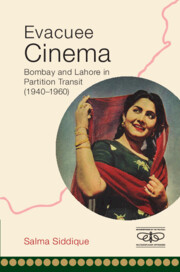
- Cited by 1
-
Cited byCrossref Citations
This Book has been cited by the following publications. This list is generated based on data provided by Crossref.
Sun, Feihan Ye, Chongliang and Feng, Xiaoyan 2023. Fostering Cultural Innovation in the Digital Age: Unveiling the Competitive Edge of Dialect Group Culture. Journal of the Knowledge Economy,
- Publisher:
- Cambridge University Press
- Online publication date:
- October 2022
- Print publication year:
- 2023
- Online ISBN:
- 9781009151214
- Subjects:
- Film, Area Studies, South Asian History, Asian Studies, History, Political Economy, Film, Media, Mass Communication, Political Sociology




